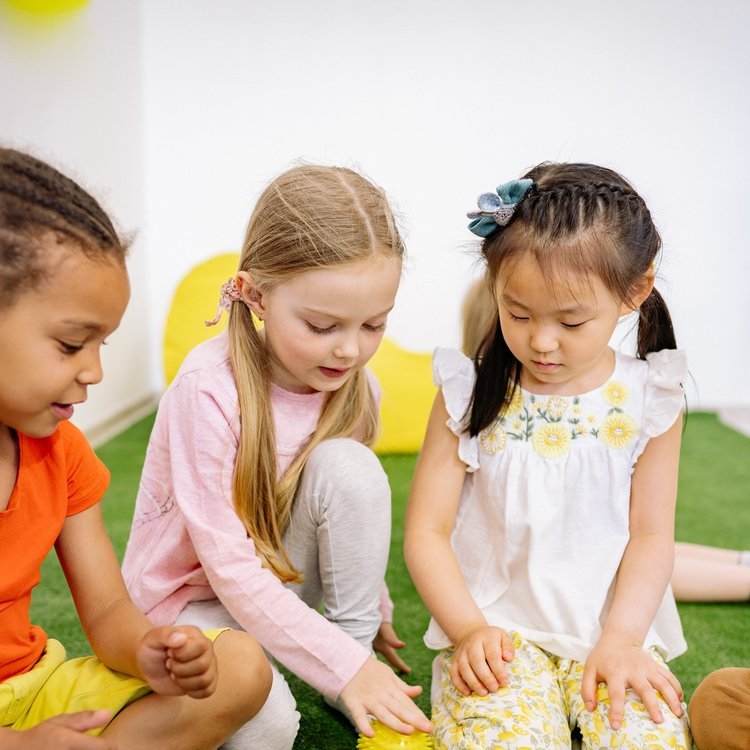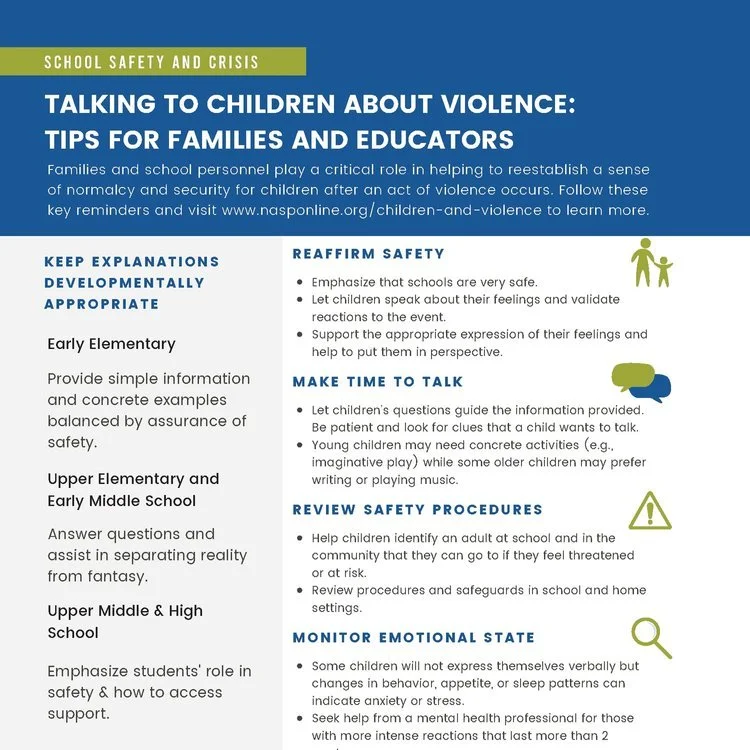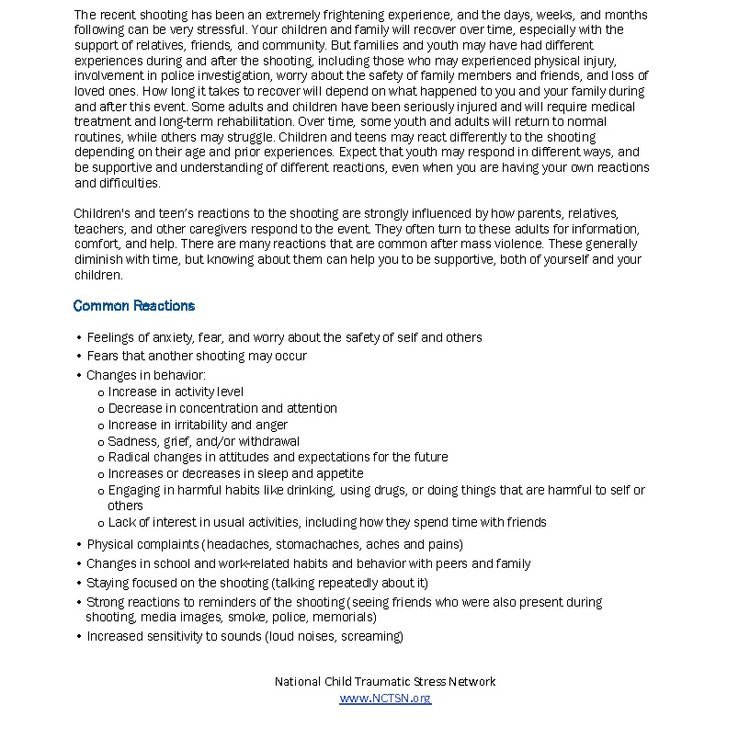How to talk to your kids about school shootings
Kids under 7
Ask open-ended questions.
Use simple sentences.
Don’t overtalk.
Reassure them that they’re safe and that people are working on the problem.
Emphasize that emergency drills help keep them safe.
Try to keep the news away.
Save strong emotions for your adult support community ( kids often get scared when they don’t know why parents are upset).
Allow them to express themselves how they want.
Make it a normal day.
Information from Common Sense Media
Tweens and Teens
Find out what they know.
State the Facts.
Check-in.
Encourage them to express themselves.
Read their Cues.
Share your feelings.
Talk about emergency drills.
Help them feel secure.
Look our for signs of anxiety, generalized worry, or traumatic stress.
Model behavior.
Filter news, or watch together.
Compare different news sources.
Get involved.
Information from Common Sense Media
For parents
Parents deal with quite a lot of anxiety and stress during tragic events such as a school shootings. Taking care of yourself is also extremely important. If you are looking for ways to help ease some of your own worries, be proactive.
Form a parent group at the school and together assess what the school needs, get involved in the planning process for drills, and have ongoing conversations about keeping the school safe.
Information from Child Mind Institute
Resources for families, and educators, on how to discuss and go forward after a school shooting
Talking to Kids about violence: tips for parents and educators
Reassure children that they are safe.
Make time to talk.
Keep your explanations developmentally appropriate.
Review Safety Procedures.
Observe children’s emotional state.
Limit television viewing of these events.
Maintain a normal routine.
Information from the National Association of School Psychologists
Reactions in youth after a school shooting & things you can do for yourself and child
Common Reactions:
Feelings of anxiety, fear, and worry about the safety of self and others
Fears that another shooting may occur
Changes in behavior (decrease in concentration and attention, increase in irritation and anger, sadness, grief, and/or withdrawal)
Physical complaints (headaches, stomachaches, aches, and pains)
Changes in school and work-related habits
Staying focused on the shooting (talking about it repeatedly)
Strong reactions to reminders of the shooting
Information from The National Child Traumatic Stress Network
What parents can do for themselves & their children
What you can do for yourself & Child:
Take care of yourself
Put off major decisions
Give yourself a break
Spend time talking with your children
Find time to have these conversations
Promote your children’s self-care
Maintain family expectations or “rules”
Limit media exposure
Be patient & manage reminders
Information from The National Child Traumatic Stress Network & Child Mind Institute
Helpful breathing & mindfulness exercises to help clear our headspace before difficult conversations
Getting in a clear headspace before talking to our kids about emotionally charged issues can open us up for intentional listening and a safe space for our kids to feel free to express their own emotions. Let’s take a breath to help our kids do the same. Here are a couple of quick exercises to do before we have those conversations with our kids. Find a quiet space and take a moment…
Breathing Break through Guided Meditation by Andrew Johnson
Balance For Busy Lives (Breathwork On-The-Go) by Andrew Johnson
Relaxing Mindful Breathing Practice by Andrew Johnson
Three Minute Mindful Break by Dena Argyropoulou
Art of Mindful Listening by Bracey Arman Wright
List of Websites with a variety of resources to help youth and families process a school shooting
How Scary News Can Impact Kids Who Learn and Think Differently, Understood
Trauma Types, The National Child Traumatic Stress Network
School Shooting Resources, The National Child Traumatic Stress Network
Resources for Educators, Families to Discuss School Shootings, San Diego County Office of Education
How to Talk to Kids about School Shootings, Child Mind Institute
Going Back to School After a Tragedy, Child Mind Institute
Helping Children Cope with Frightening News, Child Mind Institute
How To Talk To Kids About School Shootings, Age-Based, Common Sense Media
Tips for Talking to Children and Youth After Traumatic Events: A Guide for Parents and Educators, Substance Abuse & Mental Health Services Administration
Managing Your Distress in the Aftermath of a Shooting, American Psychological Association






